Himalayan Salt Benefits: Why It’s Better Than Table Salt
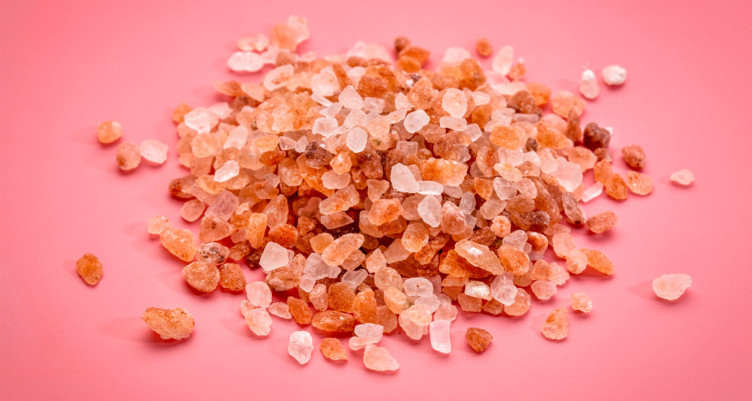
- Sodium is a vitally important mineral that your body needs to function. But too much sodium—as well as sodium that’s not balanced by other minerals—can contribute to health issues and unwanted side effects.
- What is in salt? Natural ones like pink Himalayan salt and sea salt contain sodium and other helpful minerals like potassium and magnesium that support overall health and wellness.
- Read on to learn more about the pros and cons of table salt, Himalayan pink salt and sea salt.
Along with fat, salt has been demonized for decades in the name of heart health. Truth is, you can consider salt—especially Himalayan pink salt—a health-supportive food, in the right amounts.
You’d die without sodium, and several studies have found that restricting sodium may not impact the risk of heart disease as much as previously thought and that restriction may have actually been associated with increased risk of death overall.[1][2]
So, why is salt so confusing? When scientists research the health effects of salt, they most commonly study table salt, which behaves differently in the body and has more sodium than Himalayan salt and sea salt. Plus, table salt doesn’t have other balancing minerals like potassium, calcium and magnesium that counteract the negative effects of sodium.
On the other hand, you can enjoy several benefits of Himalayan salt by incorporating it into your diet in plenty of creative ways. But before you start flexing your culinary skills, learn more about the different types of salts, how they affect your body and just how much salt you should consume on a daily basis.
Is pink Himalayan salt good for you?
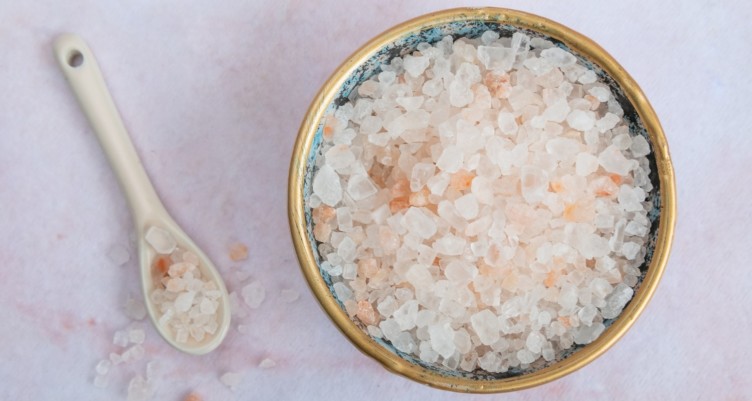
Where does Himalayan salt come from? This popular pink-colored mineral is mined from ancient sea beds in the Himalayan Mountains of Pakistan, which have been compressed over centuries to form dense, dry salt rock layers. (These ancient sea beds are the reason you may see or hear it called “Himalayan sea salt.”)
How does the mining process work? In the Himalayas, it is done mechanically. Workers rely on a range of techniques, including hand-mining and machine-mining. The important thing is that Himalayan salt miners in the Punjab region of Pakistan do not use explosives in order to obtain the purest salt possible. Typically, the final product gets tested for contamination of heavy metals, impurities, pollutants and other things you don’t want in your food.
There’s conflicting information on how many different minerals and trace elements Himalayan salt has. Some sources say 60, but others say over 80.[3] No matter whom you believe, Himalayan pink salt has dozens of trace minerals and certainly has a higher mineral content than table salt, which contains only sodium chloride. Its pink color comes from its iron content.
Good salt isn’t enough to replace a good diet and targeted supplements. But a mineral boost—and especially an electrolyte boost—a few times a day when you salt your food is a wonderful thing. Since a good portion of your cells run on electricity, you want plenty of electrolytes like sodium, potassium, calcium and magnesium dissolved in your cellular water. Electrolytes help your cells carry an electrical charge, and electricity allows your cells to do their daily jobs and communicate with one another.
Unlike table salt, which is pretty much NaCl and not much else, your body knows what to do with Himalayan pink salt because of its mineral profile. Here’s the biochemical reason why there are benefits of Himalayan pink salt for your health that you may not get with regular table salt.
Most cells have a higher concentration of sodium outside the cell and a higher concentration of potassium inside the cell. When you have too much sodium and not enough potassium, the cell takes in too much sodium and it doesn’t do its job properly.
Potassium and sodium work closely together. One of the great things about potassium is that it actually lowers blood pressure.[4] Brain, nerve and muscle cells depend on a proper balance of sodium, potassium and calcium to “talk” to each other. When your dietary salt brings the full range of minerals, you get more health benefits, and you don’t have to worry about too much salt throwing things off-kilter. When doctors recommend upping your electrolytes for sore muscles, twitching or cramping (especially with pregnant women), this is why.
Related: What’s the Best Way to Stay Hydrated? Focus on Cellular Hydration
Himalayan salt benefits
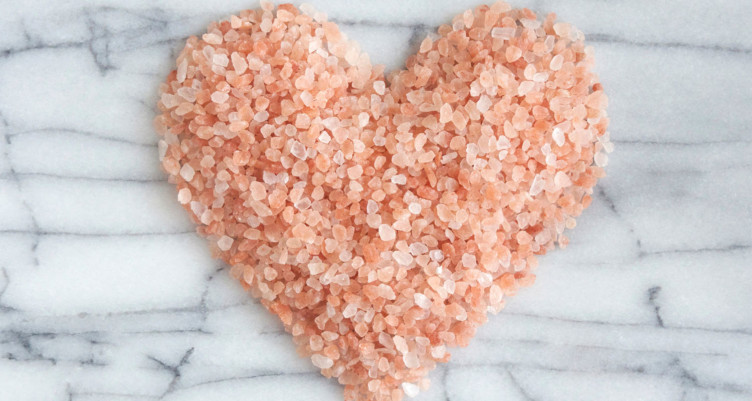
Even if going to a salt therapy session isn’t your thing, finding ways to incorporate pink salt into your diet is still a sound idea. Here are some Himalayan salt benefits that your body will appreciate:
- Boosts your mineral intake with regular use.
- Contains minerals like potassium and magnesium that help you balance the effects of sodium.
- Reduces mild to moderate sinus and respiratory problems like asthma, congestion, and inflammation-related lung problems, when inhaled as salty air.[5][6]
- May help maintain insulin sensitivity, helping you get energy out of the food you eat. [7][8][9]
- A pinch of salt in water in the morning slightly raises blood pressure, giving you the energy to start the day.
Himalayan salt is also used for non-dietary reasons. Some people use bath salts or scrubs made with it for muscle and skin care. This pink-colored salt even serves a decorative purpose, as large blocks of it are used to make lamps that’ll light up a room in unique style.
Pro tip: Because it supports electrolyte balance, Himalayan salt is commonly recommended for people who follow lower-carb diets. Himalayan pink salt can help you get through the keto flu by providing much-needed electrolyte support. Powering through that initial switch to ketosis also requires lots of rest, proper hydration and consuming plenty of ketone-boosting quality fats like Bulletproof Brain Octane C8 MCT Oil.
Himalayan pink salt vs. other types of salts
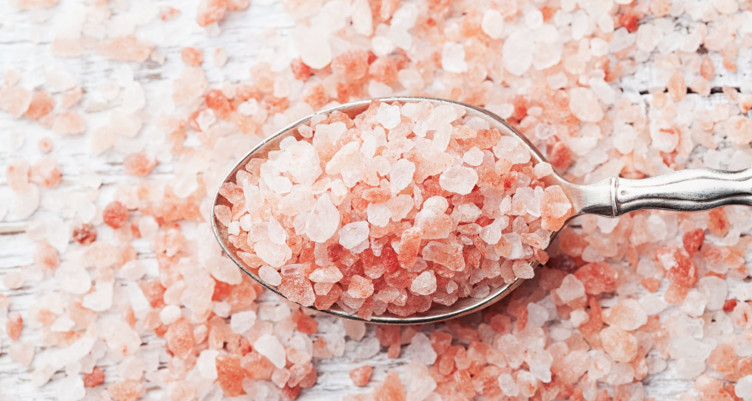
One salt isn’t better than the other just because it’s natural or not. Now that you know some key Himalayan pink salt benefits, let’s dive deeper into the other types of salts you might have tucked away in your pantry.
Sea salt
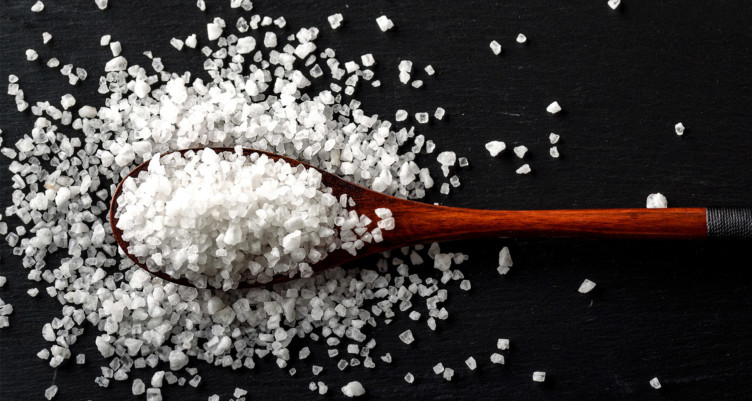
Like Himalayan salt, sea salt comes from sea beds. The main difference is that Himalayan salt is a dry salt mined from rock salt in one region, whereas sea salt comes from saltwater sources from all over the world. Manufacturers package sea salt on the wet side, similar to the texture of good castle-building sand.
Being a natural salt, the mineral profile is similar to the Himalayan variety. With sea salt, though, the source matters—a lot. When you harvest seawater from contaminated ocean areas, the salt you get from evaporation ends up contaminated as well. Researchers have found plastics and chemicals in certain sea salts that you don’t want to sprinkle on your food.
High-quality sea salt from clean sources is great for you, though, and people who experience headaches from table salt and Himalayan salt generally do well on well-sourced sea salt. You might also opt for sea salt if your doctor told you to cut back on sodium since it contains less sodium than Himalayan salt and even lower levels than table salt. You have to be willing to do your research on production to make sure it comes from clean sources.
Sea salt is commonly used in recipes because its flaky texture adds a delicious finishing touch to meals. If you’re looking for some tasty ways to add more sea salt to your diet, consider these recipes:
- Chilled Prosciutto-Wrapped Asparagus Antipasto: For an appetizer or even a quick lunch, you can’t go wrong with this refreshing dish, which incorporates flaky sea salt into an herb-packed dressing and for finishing.
- Sugar-Free Chocolate Coffee Truffles: Is there anything more decadent than coffee and chocolate? These sugar-free truffles combine both rich flavors into one perfect bite-sized morsel. A sprinkle of sea salt on top adds a satisfying crunch while enhancing the sweet flavor. Whether you prefer the sweet and smooth notes of Bulletproof Original Coffee Beans or the smoky finish of Bulletproof French Kick Ground Coffee, you can’t go wrong with this sin-free recipe.
- Paleo Pumpkin Scones: Have one of these sea salt-topped scones alongside your morning Bulletproof Coffee and you’ll feel ready to tackle the day. Packed with quality fats from Bulletproof Grass-Fed Ghee, you can give your body a further nutrient boost with a delectable glaze featuring a Bulletproof Chocolate Dipped Collagen Protein Bar.
Table salt
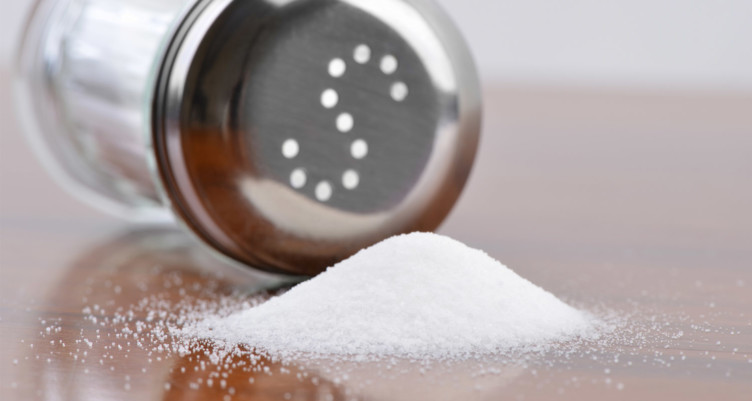
Although it is far from pure, table salt is as close to 100% NaCl as you can get. What are some features commonly associated with table salt?
- It is mined using explosives, which is an uber-cheap method. But you can’t blow something up without leaving unwanted compounds behind.
- Table salt is chemically bleached to make it unnaturally white. It’s also stripped of minerals like potassium and magnesium that balance its effects on blood pressure.
- Manufacturers mix in anti-caking agents to keep it from clumping. Some anti-caking agents in foods (like calcium carbonate) are safer than others that contain aluminum or cyanide compounds.
Then, you sometimes find ingredients you don’t expect. Some brands of commercially available salt even contain dextrose, a corn-derived sugar. People don’t realize they’re not only salting their food, they’re sugaring it too!
Iodized salt
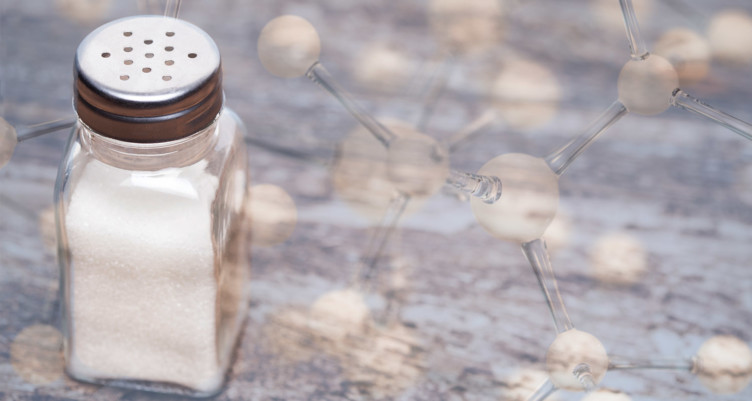
Iodized salt is just table salt with potassium iodide added to it. Government initiatives in the 1920s introduced potassium iodide into salt to reduce goiter, which is enlarged thyroid from iodine deficiency.
Iodine is important for proper thyroid function and its intake needs to be balanced with another mineral important for thyroid function, selenium.
Related: Are You Tired, or is it Low Magnesium? Signs of Magnesium Deficiency
How much salt should I eat?
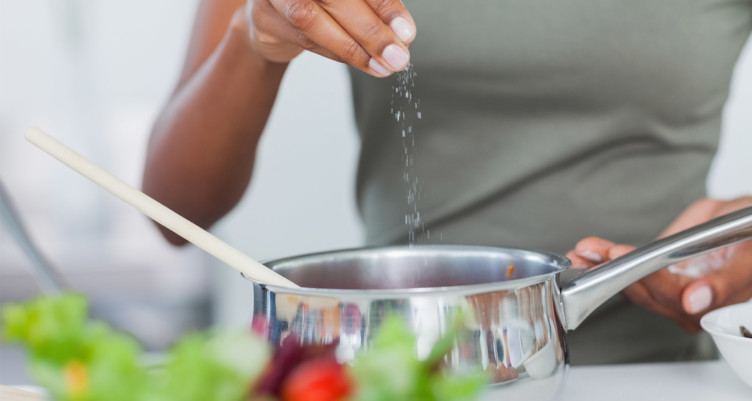
Is Himalayan salt good for you? Yes, in moderation. Though there’s no one-size-fit-salt approach to salt, the recommended daily amount of sodium is less than 2,300 milligrams per day.[10]
Generally speaking, you’re likely getting a healthy amount of salt when:
- You eat real food
- You’re eating minimal amounts of prepackaged foods or foods with preservatives
- You salt your food to taste
When you’re eating real food and a ton of vegetables, your body will self-regulate your salt intake. That’s not the case with packaged foods. Food manufacturers engineer the taste of snacks and packaged foods to keep them shelf-stable and also make you want more, so you’re getting more salt than your taste buds detect.
There are a lot of changes you might want to make in your lifestyle to improve the way you feel. Salt is an easy one. Once you find one that works for you, you never have to think about it again. Just reach into your cupboard and sprinkle away!
Curious to know how much salt is right for you and your lifestyle? Read our handy guide for determining how much salt you should eat.
Sign up for early access to sales, product launches, the latest Bulletproof news and more!
This article has been updated with new content.



